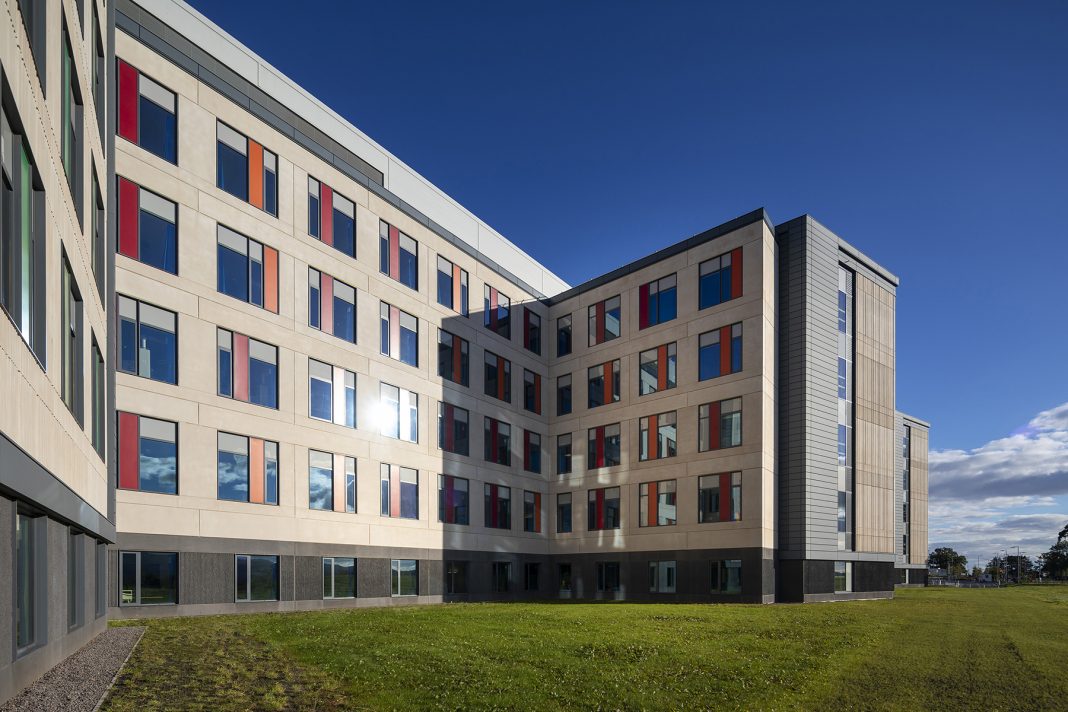Off-site assembly of architectural glazing systems by Kawneer have helped elements of a £350 million new hospital to finish almost a year ahead of schedule and help with the Covid crisis.
AA720 HI Reflex Plus windows were fabricated into precast sandwich panels at the main contractor’s off-site factory for installation at The Grange University Hospital at Llanfrechfa Grange in Gwent.
The windows were complemented by the manufacturer’s AA100 zone-drained curtain walling with 50mm sightlines, and three types of entrance doors – AA720s, AA190 TBs and folding/sliding AA3720s.
The windows featured both glazed and spandrel panels which were thermally enhanced to comply with the thermal model, using a mineral wool core to comply with Building Regulations as well as providing bright colours for the façade in the form of orange face caps.
They also included feature pods designed by specialist sub-contractor and approved Kawneer installer/dealer Bennett Architectural Aluminium Solutions which were extruded by Kawneer at its factory in Runcorn, Cheshire.
Designed by architects BDP to BIM Level 4, the 560-bed Grange has already won two awards – Constructing Excellence Wales for Digital Construction and an Off-site Award. It comprises 11 operating theatres, one Cat 3 Laboratory, two MRI suites, two CT suites and an education block.
Previously known as the Specialist and Critical Care Centre, it is the centre piece of a new model of healthcare delivery, serving more than 600,000 people, and will deal with all major emergencies, including the Covid pandemic, as well as 40 specialist services, with a helicopter pad for patients who need to arrive by air ambulance.
Designed to be flexible, adaptable and expendable, the 55,000m2 hospital’s universal rooms allow operational flexibility and blurring of departmental boundaries to deal with changing demand.
Beds were released 30% earlier than the original programme through productivity efficiencies during the Covid crisis while the DfMA (MMC) approach saved 237,000 working hours – equivalent to a 23% overall planned programme saving.
In addition, 821 precast columns and 1,200 precast wall modules were installed, representing 85% and 95% working hours savings respectively.












